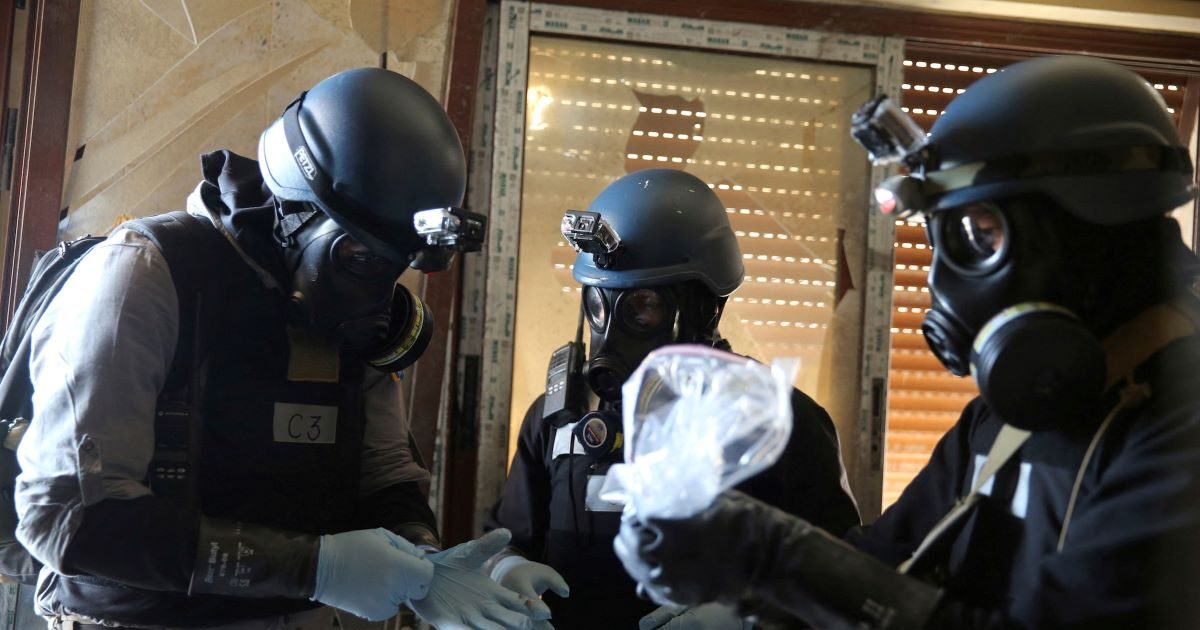After the fall of his regime Bashar al-Assad the director general of the Organization for the Prohibition of Chemical Weapons (OPCW) warned yesterday (12.12.2024) of the possibility of bombing facilities where chemical weapons are located in Syria.
The day after Bashar al-Assad’s overthrow finds the international community expressing concern over the fate of Syria’s chemical weapons stockpile, for fear of contamination and destruction of important evidence.
Israel said on Monday it had hit “remaining chemical weapons” and “long-range missiles or rockets”. in order “not to fall into the hands of extremists”.
THE general director of the OPCW, Fernando Arias, assured that his services are “closely monitoring” information about bombings of Syrian military installations.
“We don’t yet know if the bombings hit facilities linked to chemical weapons. Such bombings could create a risk of contamination,” pointed out Mr. Arias in his speech.
“Another real danger is the destruction of important evidence of the investigations carried out by various independent international organizations into the use of chemical weapons in the past,” he added.
In 2014, the OPCW created what it called an “investigative mission” to investigate the use of chemical weapons in Syria.
This group submitted 21 reports, covering 74 cases of alleged use of chemical weapons in war; according to the organization.
The researchers concluded that they were used or likely to be used in 20 cases.
“Furthermore, we must also consider the risk of dangerous chemicals or equipment being lost, without any control,” warned Mr. Arias in his speech.
The Syrian government agreed in 2013 to become a member of the OPCW, shortly after an alleged chemical weapons attack that killed more than 1,400 people near Damascus.
It had surrendered its declared stockpile for destruction, but the OPCW never stopped expressing concern that Damascus’s official declaration was incomplete, that it continued to have chemical weapons at its disposal.
OR Islamist organization Hayat Tahrir al-Sham (HTS)the strongest of the rebel organizations that took power, pledged to “cooperate with the international community on everything related to the surveillance of (chemical) weapons and sensitive areas.”
The group also said it would protect Syria’s remaining stockpiles of chemical weapons and guarantee they would not be used against civilians.
“We are hearing positive messages from Syria about the need to rid the country of all chemical weapons that were left after the fall of the previous government,” said Mr. Arias, hastening to clarify that there has not yet been official contact with the new authorities. .
The change of government “may be an opportunity to secure clarifications on the extent and scope of the Syrian chemical weapons program,” he also ruled.
This is “a task that we could not carry out under the previous government, during the last 11 years”, he added.
Meanwhile, the United Nations Office for the Coordination of Humanitarian Affairs reported yesterday that it estimates that over a million people – the majority of them women and children – have become internally displaced in Syria since November 27, when a lightning assault by rebels led by Hayat Tahrir al-Sham (HTS) was launched that led to the ouster of former President Bashar al-Assad on Sunday.
As of yesterday 12 December “1.1 million people have been re-displaced across the country since the escalation of hostilities began” on 27 November. “The majority of them are women and children,” OCHA said in a statement.
